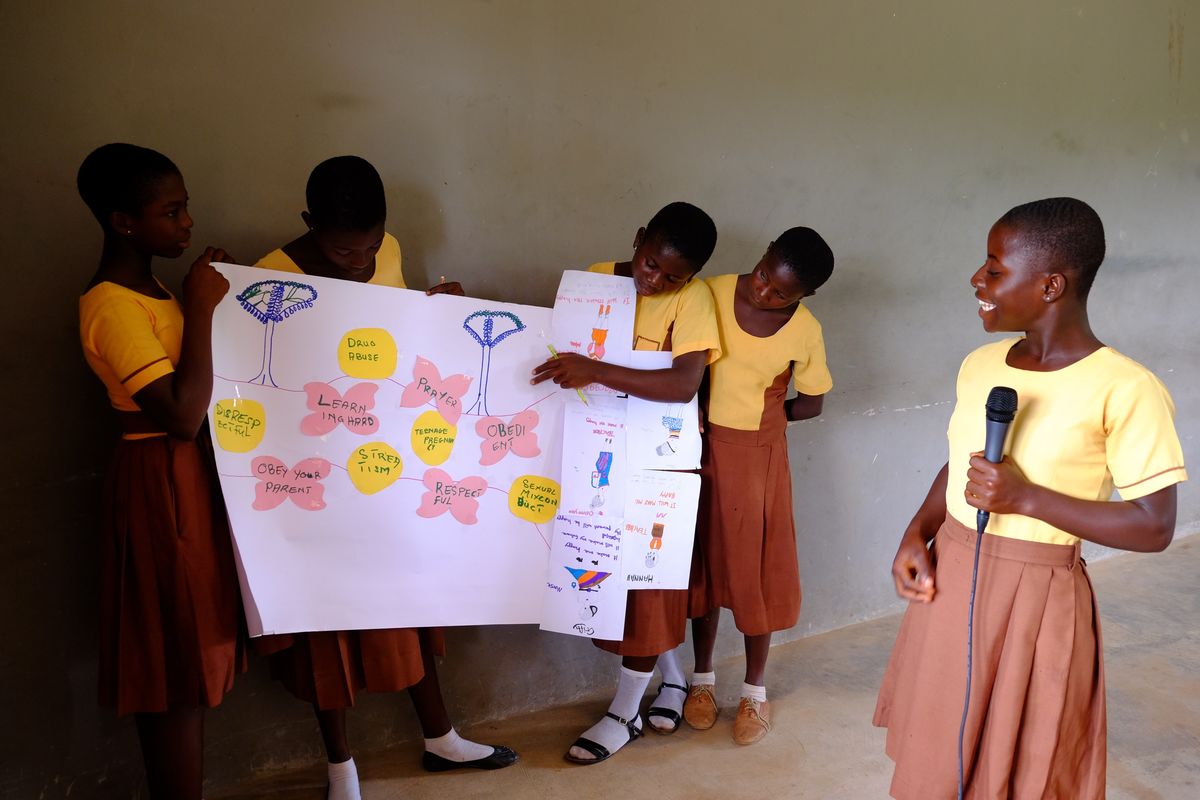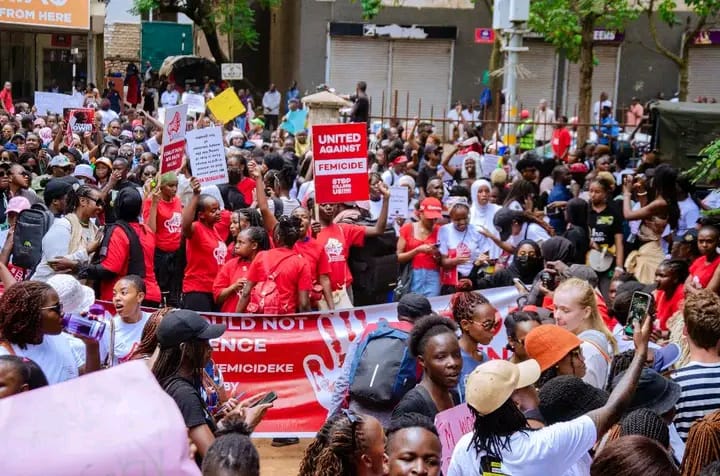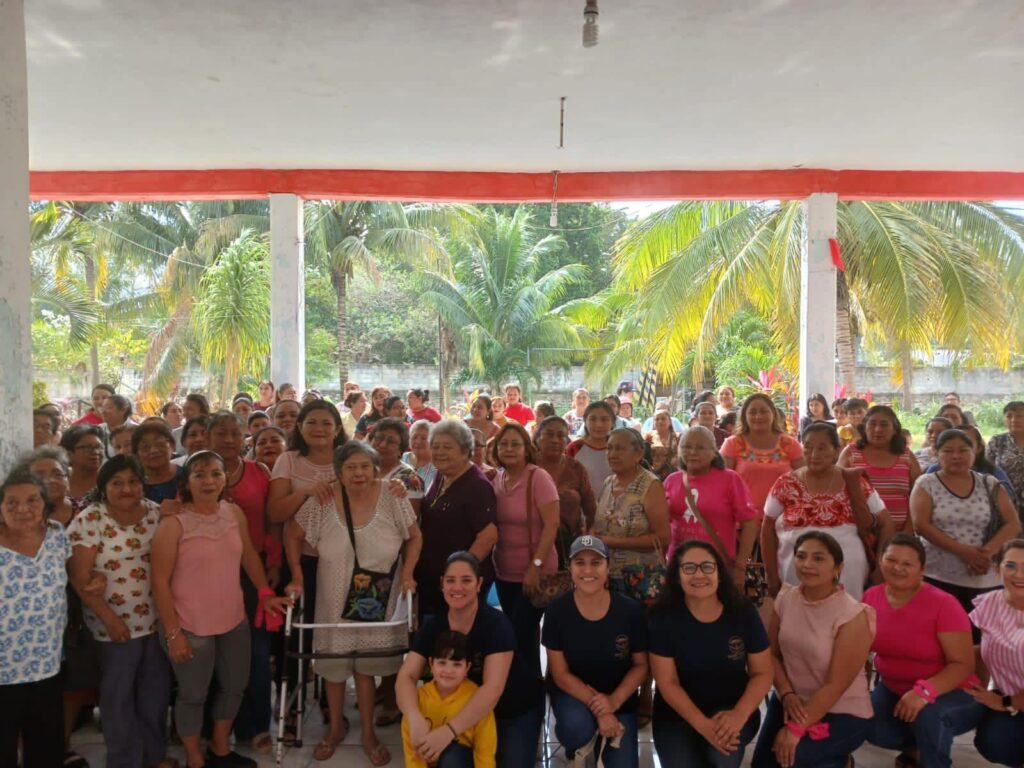Ending Stigma around Menstruation to Keep Girls in School

Menstruation. It’s a monthly fact of life for girls who reach puberty and for most women of reproductive age. And yet it’s still a taboo topic, one that’s not talked about openly in many communities around the world.
But it’s one thing to not talk about periods. It’s another when menstrual stigma – coupled with harmful cultural practices such as seclusion, poor sanitation, and a lack of menstrual supplies – stops girls from going to school and participating in daily life.
According to the World Bank, African girls miss as much as 20 percent of school days because they are menstruating. It’s a factor that contributes to their high secondary school drop-out rates , at a time when too many girls in sub-Saharan Africa leave school to get married, take on family responsibilities, or earn wages to contribute to family income.
Ms. Abenaa Akuamoa-Boateng, Executive Director of WomenStrong founding member Women’s Health to Wealth, is working to change these statistics for girls in Ghana’s Ashanti region.
“Girls must have accurate information regarding their own menstrual health, need access to menstrual supplies, and should no longer feel shame or stigma when dealing with menstruation,” Abenaa said.
Women’s Health to Wealth (WHW) works with women and girls on education, health, and income-generating projects in the communities surrounding Kumasi, Ghana’s second largest city, featuring West Africa’s biggest market. It’s an area where untrammeled development and urban sprawl have outpaced infrastructure, where nearly half of the estimated 2.7 million residents live in informal settlements without reliable access to clean water and toilet facilities.
Girls’ Clubs are a cornerstone of WHW’s approach to keeping girls in school and helping them take charge of their lives. These Clubs offer safe spaces where girls can learn critical life skills and navigate relationships with boys and their parents. As the Girls’ Clubs have become successful, Women’s Health to Wealth has added opportunities for boys to become engaged through Clubs of their own.
Through these Clubs, Women’s Health to Wealth reaches over 3,400 adolescent girls and boys each year in schools and community spaces in the peri-urban areas around Kumasi.
The curriculum, which fed into WomenStrong’s own Strong Girls Make Strong Women Girls’ Club Handbook, covers reproductive health topics, including menstruation, HIV and AIDS, and safe motherhood. It includes practical information such as how to acquire menstrual supplies, which in Ghana often means introducing the concept and handling of reusable pads, which, in turn, require access to safe toilet facilities, clean water, and areas where the pads can dry between use.
It’s another layer of complication for girls, who yearn to feel safe and welcomed in schools.
Akuamoa-Boateng believes menstrual taboos and other issues around puberty can be overcome with the support of parents and schools in her community. She also works with religious and cultural leaders of multiple faiths to gain their buy-in. And her organization sponsors community activities to raise awareness and generate support.
This year, many of the Girls’ and Boys’ Clubs sponsored community awareness activities for Menstrual Hygiene Day, which was commemorated worldwide on May 28. Women’s Health to Wealth engaged over 780 girls and boys on that day, including a youth-focused radio show to raise awareness among families and schools about the need for girls to access menstrual supplies and sanitation facilities.
It was a breakthrough moment for many of the girls, who spoke in a matter-of-fact tone into the mic about the support they need to ensure that the arrival of puberty didn’t keep them out of school.
The girls entreated listeners to take action in support of girls’ menstrual health by imagining a world where girls were empowered.
“Strong girls make strong women,” the girls said in unison at the end of their radio program. “We are unstoppable. We are bold. We are beautiful. Every good thing we put our minds to is achievable. Everything is possible!”
For Akuamoa-Boateng and Women’s Health to Wealth, it’s the belief that everything is possible that keeps them motivated to keep working with the girls (and boys) of Ashanti, supporting them to stay in school and to tackle whatever challenges come their way.
It’s a vision that WomenStrong International fervently shares.




